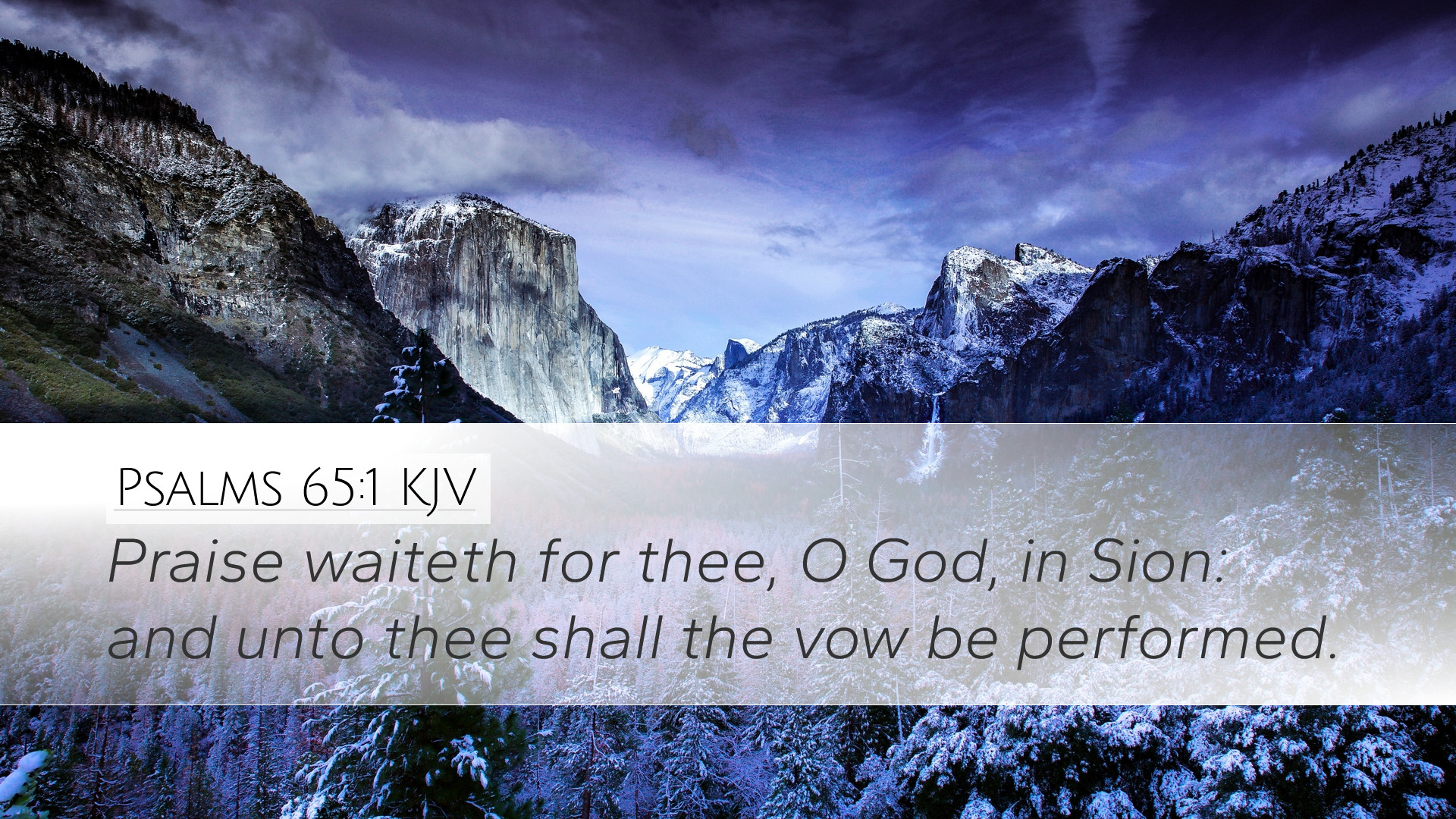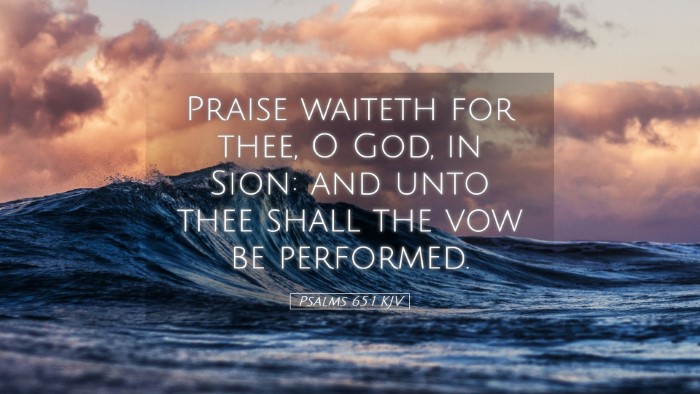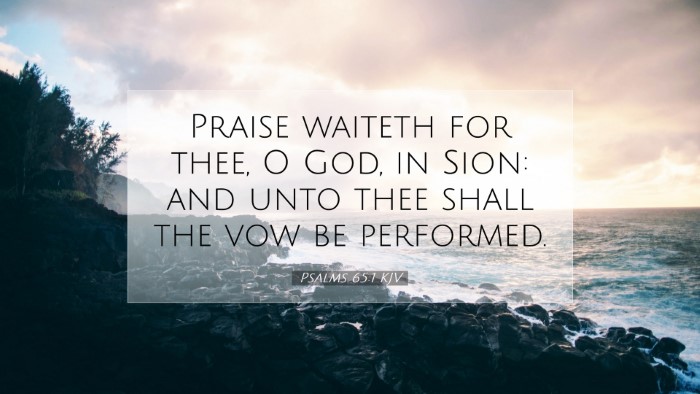Psalms 65:1 Commentary
Verse: "Praise waiteth for thee, O God, in Sion: and unto thee shall the vow be performed."
General Overview
Psalms 65 stands as a magnificent hymn of thanksgiving and praise to God. It depicts the glory of God as the Creator and the sustainer of all life, showcasing His ability to forgive sin and provide for the needs of His creation.
Contextual Background
This Psalms, generally attributed to David, may have been written during a period of harvest, evident from the themes of God's benevolence in providing for the earth and His people. The psalm is particularly focused on the worship due to God in Sion (Zion), reflecting the location of the temple and thus the central point of worship for Israel.
Key Themes
- Praise to God: The opening statement "Praise waiteth for thee" reflects a sense of eager anticipation for worship. It suggests that the act of praising God is a significant element of the life of faith.
- Divine Sovereignty: The psalm emphasizes God's control over nature, hinting at His providence and sovereignty. This is crucial for understanding His relationship with creation.
- Forgiveness and Redemption: References to God’s forgiving nature remind us of the covenant relationship He maintains with His people, highlighting a key aspect of His character.
- Thanksgiving: The vow "unto thee shall the vow be performed" reflects a commitment to thankfulness and formal acts of worship, showing the relationship between individual and corporate expressions of worship.
Commentary Insights
Matthew Henry's Insight
Matthew Henry emphasizes that the phrase "Praise waiteth for thee" indicates a fixed and certain expectation. The anticipation of praise signifies that even before worship commences, God is worthy of it. The use of "waiteth" suggests a continuous readiness to proclaim God's greatness, reflecting an intrinsic understanding of His nature.
Henry elaborates that the psalm sets a precedence for worship that is not just spontaneous but also deeply rooted in acknowledgment of God's past deeds, particularly His forgiveness of sins, which necessitates gratitude.
Albert Barnes' Perspective
Albert Barnes highlights the significance of Sion (Zion) as the place where God’s presence is especially manifest. He asserts that the psalm underscores the obligation of the faithful to engage in praise. The phrase "unto thee shall the vow be performed" suggests a resolution to engage in worship that is responsive to God’s grace.
Barnes notes that the expression of praise in this context is both individual and communal, reflecting a collective responsibility among the people of Israel to honor God. This duality emphasizes the importance of congregational worship and individual heartfelt engagement.
Adam Clarke's Analysis
Adam Clarke explores the Hebrew wording, suggesting that the word translated as "waiteth" implies an attitude of expectation and reverence towards God. This indicates that true worship involves a heart that is prepared to offer praise at all times.
Clarke also points out the necessity of fulfilling vows made to God, highlighting the devotional responsibility of the believer. He encourages the understanding that worship should not merely be ritualistic but rather debounded by a commitment to living a life that reflects God's goodness after having received His mercy.
Conclusion
Psalms 65:1 encapsulates the essence of worship as something that is both responsive to God's greatness and a duty of the community of faith. With contributions from notable commentators, we notice how this verse invites us into a deeper understanding of God’s character—His benevolence, sovereignty, and the intimate relationship He shares with His people.
For pastors, students, theologians, and Bible scholars, this verse serves as a powerful reminder of our call to worship and the importance of understanding the depth of God's grace as the foundation for that worship.


